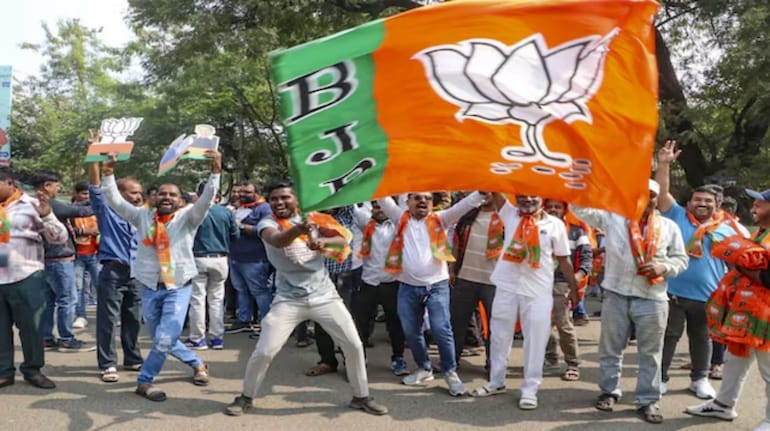



There are many firsts in the Mahayuti’s thumping return to power in the Maharashtra Assembly elections. It saw the Bharatiya Janata Party register its biggest ever tally of 132 seats in the state. It also marked the first time in five decades that a pre-poll alliance won as many seats as the Mahayuti did (230).
It is also the first time since 1967 that the Maharashtra Assembly will be without a Leader of Opposition as the Shiv Sena (UBT), the primary Opposition party, failed to get the required 10 percent seats in the 288-strong Assembly.
From Prime Minister Narendra Modi’s clarion call for unity to Chief Minister Eknath Shinde’s Ladki Bahin scheme for women, the “vote-jihad” campaign by Devendra Fadnavis to Yogi Adityanath’s ‘batenge to katenge’ slogan to consolidate Hindu voters – all played a key role in the NDA’s resurgence in the state.
However, there was a silent campaign that worked on the ground, behind the glare of the media, in the hinterland and in key pockets that has resulted in the BJP’s striking comeback from the Lok Sabha debacle in the state six months ago.
The campaign, designed and run by the Sangh Parivar, the ideological fountainhead of the BJP, is learnt to have played a key role in spreading the message of Hindu unity, a factor that ultimately resulted in a massive mandate for the BJP.
While multiple factors have been cited as the reasons behind the BJP’s once-in-decades performance, there is one striking factor that makes the difference stand out six months after the Lok Sabha debacle.
Sajag Raho campaign
The Sangh Parivar is learnt to have deployed its entire machinery in Maharashtra to help the Mahayuti win the elections. Mobilising their vast network of workers, who held over 60,000 voter meetings across the state, these right-wing organisations reached out to voters in the towns, cities and the hinterland to dispel the Opposition's narratives around caste and community under the banner of the 'Sajag Raho' (Stay Vigilant) campaign.
Staying clear of the BJP's line of 'batenge to katenge' or seeking support for the party or any of its leaders, RSS workers moved door to door to address issues such as "vote-jihad" and religious conversions, issues that were otherwise being raised aggressively by leader of the saffron party, reports Times Of India.
The Vishwa Hindu Parishad, the second-largest organization in the Sangh Parivar after the RSS, also played a key role in helping propagate the message of Hindu unity and appealed to voters to vote for the party aligned with their cause. The VHP workers also appealed to voters to exercise their franchise wisely.
Elsewhere, the Lok Jagran Manch conducted a grassroots outreach and promoted 100 percent voter participation in the Maharashtra elections. Like the RSS and VHP, these campaigns also naming any political party but focused on issues such as religious identity and cultural heritage through the effective use of plays, pamphlets etc that involved senior citizens.
Officially though, the RSS denied any involvement and said its workers were independently raising voter awareness and awakening citizens to their responsibilities, dismissing any political messaging in these campaigns.
Notably, Maharashtra Deputy CM and BJP leader Devendra Fadnavis had admitted that the party had reached out to social organisations to counter the Congress' narrative on Constitution and reservations while highlighting issues such as "vote jihad".
Notably, the Sangh Parivar's strategic outreach came on the back of the BJP's poor performance in the Lok Sabha elections where issues such as Muslim polarisation and fragmentation of the Hindu votes on the basis of caste and community.
Discover the latest Business News, Sensex, and Nifty updates. Obtain Personal Finance insights, tax queries, and expert opinions on Moneycontrol or download the Moneycontrol App to stay updated!
Find the best of Al News in one place, specially curated for you every weekend.
Stay on top of the latest tech trends and biggest startup news.